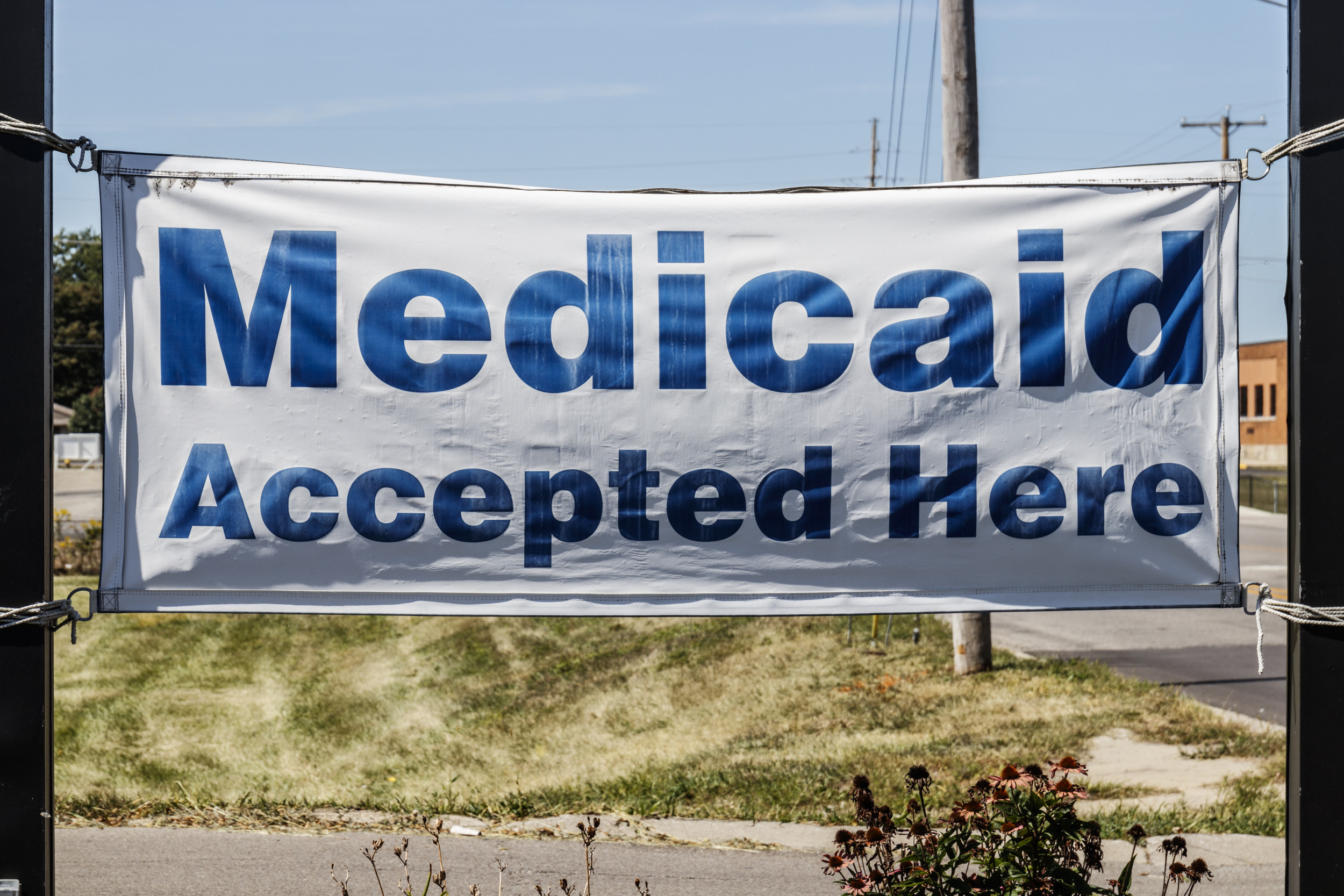
Steep cuts could be on the way for Medicaid now the House of Representatives has passed a budget resolution to enact President Donald Trump‘s fiscal agenda.
Why It Matters
Medicaid gives health coverage to some individuals and families, including children, parents, people who are pregnant, elderly people with certain incomes, and people with disabilities—although coverage varies widely by state, both in terms of benefits and eligibility criteria. As of October last year, more than 72 million people across the country had Medicaid coverage.
What To Know
House Republicans on Thursday adopted the Senate‘s framework that will be used to enact key parts of President Trump’s legislative agenda. The budget measure passed 216-214, with Republicans Thomas Massie of Kentucky and Victoria Spartz of Indiana joining Democrats in voting against it.
The budget reconciliation bill itself does not directly mention any cuts to Medicaid and Medicare, but it does instruct the House Energy and Commerce Committee to slash the Department of Health and Human Services budget by $880 billion over 10 years, something that cannot be met without cuts to Medicaid. Medicaid is jointly financed by states and the federal government but administered by states within federal rules.
The Center for Budget and Policy Priorities (CBPP), a left-leaning think tank, has said a variety of policies, first touted in a memorandum of potential cuts published earlier this year, will need to be brought in to slash the $880 billion from federal spending. Among them are work requirements, reducing federal matching rates, and instituting a per capita cap on federal spending, among others.
GETTY
Several states attempted to implement work requirements during the first Trump administration, but federal courts blocked these efforts. According to the CBPP, enforcing such requirements could jeopardize benefits for up to 36 million people.
Reducing federal match rates could also have a significant impact. The federal contribution to most health care services is determined by the Federal Medical Assistance Percentage (FMAP).
This percentage is calculated using a formula that allocates higher reimbursements to states with lower per capita incomes compared to the national average, accounting for variations in states’ financial capacity to fund Medicaid using their own resources. For every dollar the state spends on Medicaid, the federal government matches it according to this rate.
The federal match always covers at least 50 percent of costs. An expansion made by the Affordable Care Act offers a higher match (90 percent) for newly eligible adults in some states that are opted in to the expansion. But reducing the federal match rate could prompt many states to drop out of the expansion program since they’d have to make up the difference.
Implementing a per capita cap—where states receive a fixed amount of federal funding per enrollee rather than an open-ended stream—could cut federal spending by $532 billion to $1 trillion over ten years, potentially causing up to 15 million people to lose coverage by 2034, according to KFF Health.
What People Are Saying
House Democratic Leader Hakeem Jeffries said before the vote: “The reckless Republican budget scheme will slash nutritional assistance for working families and make the largest cut to Medicaid in history, all so they can give massive tax breaks to billionaire donors like Elon Musk.”
The CBPP said in a March 17 report: “These changes will hurt people’s access to health care and their health. Deep Medicaid cuts would mean a person could lose health coverage through Medicaid and be unable to get cancer treatment, that an older adult loses the home-based care they need to stay out of an institution, or that a young adult can’t get insulin to control their diabetes.”
House Speaker Mike Johnson said on X, formerly Twitter, following the passing of the bill on Thursday: “It’s a good day in the House. House Republicans passed the Senate amended budget resolution, allowing us to move forward with drafting the one big, beautiful bill. The American people are counting on us, and we will deliver.”
What’s Next
The budget resolution will now be drafted as legislation, and will face more votes later this year.
